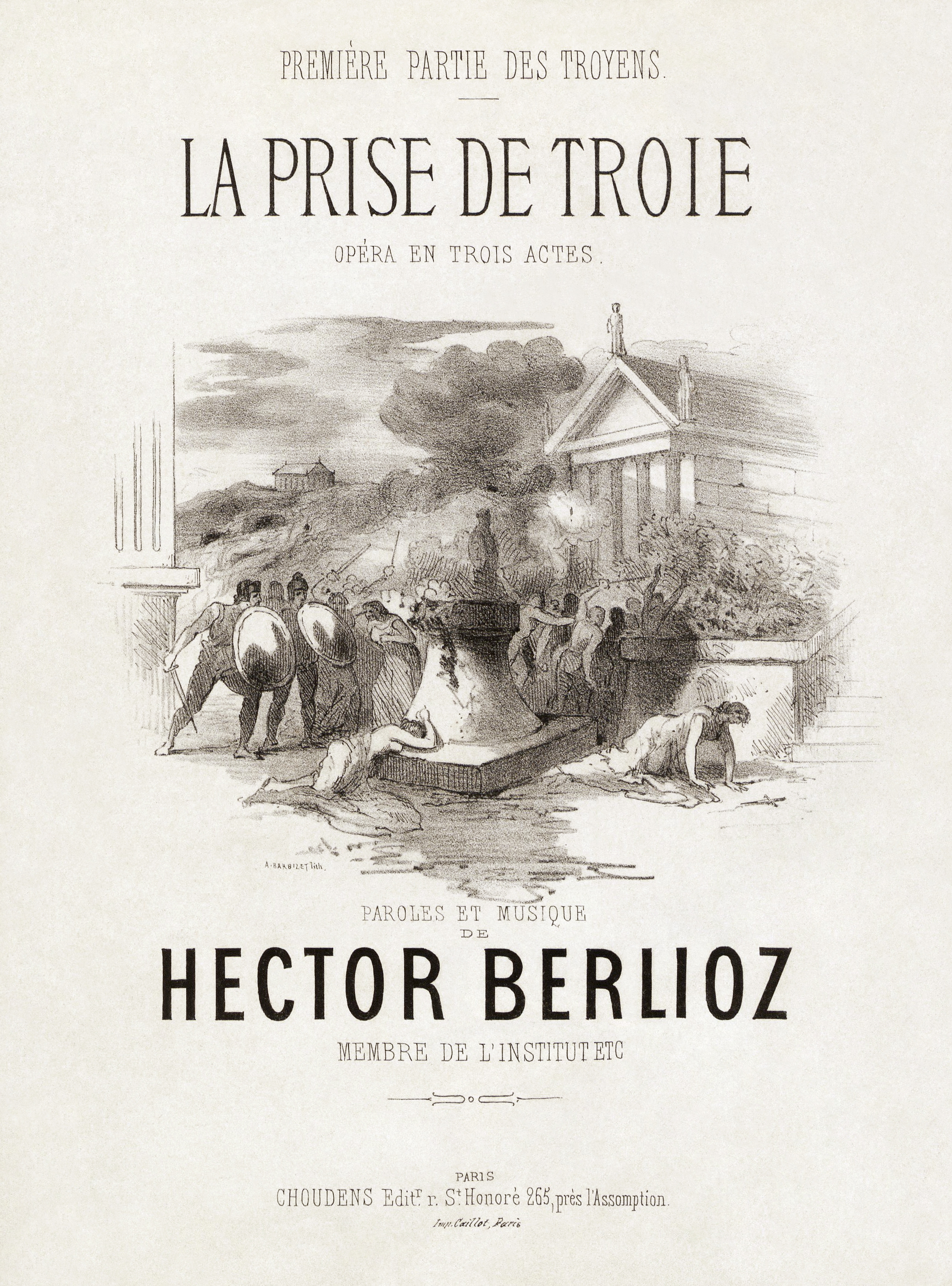|
Zdenka Faßbender
Zdenka Faßbender (also Zdenka Hanfstaengl, Zdenka Anna Fassbenderová; 12 December 1879 – 14 March 1954) was a Czech born German operatic soprano. Life Born in Děčín, Faßbender attended the Prague Conservatory and received training as a stage singer with Sophie Loewe-Destinn. In 1899 she made her debut at the Hoftheater Karlsruhe as Rachel in ''La Juive'' by Jacques Fromental Halévy. She soon achieved success as an interpreter of highly dramatic roles. On 7 June 1903, she took over the title role in the premiere of the opera ''Ilsebill'' by Friedrich Klose. In Karlsruhe she met the conductor Felix Mottl. When he was called to the Nationaltheater München in 1904, Faßbender followed him there in 1905. In Munich she was Mottl's partner, but she married him only in 1911 on his deathbed, because his first wife Henriette Mottl-Standthartner did not agree to a divorce. After his death, she married in 1920 with the art publisher Edgar Hanfstaengl (1883-1958, eldest son of ... [...More Info...] [...Related Items...] OR: [Wikipedia] [Google] [Baidu] |
Parsifal
''Parsifal'' ( WWV 111) is an opera or a music drama in three acts by the German composer Richard Wagner and his last composition. Wagner's own libretto for the work is loosely based on the 13th-century Middle High German epic poem ''Parzival'' of the ''Minnesänger'' Wolfram von Eschenbach, recounting the story of the Arthurian knight Parzival (Percival) and his quest for the Holy Grail. Wagner conceived the work in April 1857, but did not finish it until 25 years later. In composing it he took advantage of the particular acoustics of his Bayreuth Festspielhaus. ''Parsifal'' was first produced at the second Bayreuth Festival in 1882. The Bayreuth Festival maintained a monopoly on ''Parsifal'' productions until 1903, when the opera was performed at the Metropolitan Opera in New York. Wagner described ''Parsifal'' not as an opera, but as (a festival play for the consecration of the stage). At Bayreuth a tradition has arisen that audiences do not applaud at the end of the first ... [...More Info...] [...Related Items...] OR: [Wikipedia] [Google] [Baidu] |
Der Arme Heinrich (opera)
''Der arme Heinrich'' is a German-language opera in three acts by Hans Pfitzner to a libretto by James Grun. The premiere was at the Mainz Municipal Theatre on 2 April 1895. The opera is based on Hartmann von Aue's 12th-century narrative poem ''Der arme Heinrich''. Recordings *2002: Dortmunder Philharmoniker, , Capriccio 2 CDs, C60087 Naxos Records
Naxos comprises numerous companies, divisions, imprints, and labels specializing in classical music but also audiobooks and other genres. The premier label is Naxos Records which focuses on classical music. Naxos Musical Group encompasses about 1 ...
References Ext ...
|
Der Rosenkavalier
(''The Knight of the Rose'' or ''The Rose-Bearer''), Op. 59, is a comic opera in three acts by Richard Strauss to an original German libretto by Hugo von Hofmannsthal. It is loosely adapted from the novel ''Les amours du chevalier de Faublas'' by Louvet de Couvrai and Molière's comedy ''Monsieur de Pourceaugnac''. It was first performed at the Königliches Opernhaus in Dresden on 26 January 1911 under the direction of Max Reinhardt, Ernst von Schuch conducting. Until the premiere, the working title was ''Ochs auf Lerchenau''. (The choice of the name Ochs is not accidental, for in German "Ochs" means "ox", which describes the character of the Baron throughout the opera.) The opera has four main characters: the aristocratic Marschallin; her very young lover, Count Octavian Rofrano; her brutish cousin Baron Ochs; and Ochs' prospective fiancée, Sophie von Faninal, the daughter of a rich bourgeois. At the Marschallin's suggestion, Octavian acts as Ochs' ''Rosenkavalier'' by pre ... [...More Info...] [...Related Items...] OR: [Wikipedia] [Google] [Baidu] |
Tosca
''Tosca'' is an opera in three acts by Giacomo Puccini to an Italian libretto by Luigi Illica and Giuseppe Giacosa. It premiered at the Teatro dell'Opera di Roma, Teatro Costanzi in Rome on 14 January 1900. The work, based on Victorien Sardou's 1887 French-language dramatic play, ''La Tosca'', is a melodramatic piece set in Rome in June 1800, with the Kingdom of Naples's control of Rome threatened by Napoleon's Campaigns of 1800 in the French Revolutionary Wars#Italy, invasion of Italy. It contains depictions of torture, murder, and suicide, as well as some of Puccini's best-known lyrical arias. Puccini saw Sardou's play when it was touring Italy in 1889 and, after some vacillation, obtained the rights to turn the work into an opera in 1895. Turning the wordy French play into a succinct Italian opera took four years, during which the composer repeatedly argued with his librettists and publisher. ''Tosca'' premiered at a time of unrest in Rome, and its first performance was delayed ... [...More Info...] [...Related Items...] OR: [Wikipedia] [Google] [Baidu] |
Tiefland (opera)
''Tiefland'' (''The Lowlands'') is an opera in a prologue and two acts by Eugen d'Albert, to a libretto in German by Rudolf Lothar. Based on the 1896 Catalan play '' Terra baixa'' by Àngel Guimerà, ''Tiefland'' was d'Albert's seventh opera, and is the one which is now the best known. Performance history ''Tiefland'' was first performed on 15 November 1903 at the Neues Deutsches Theater in Prague, with only limited success. Part of the reason for the lukewarm reception may have been because the house's leading dramatic tenor, Wilhelm Elsner, had died suddenly not too long before the opera's premiere, forcing another singer to learn and perform the role of Pedro in a relatively short amount of time. For its next performance, ''Tiefland'' was revised by D'Albert and revived in Hamburg and Berlin in 1907, where it played to long runs. Its American premiere took place at the Metropolitan Opera in New York on November 23, 1908 with Emmy Destinn and Erik Schmedes in the two leading ... [...More Info...] [...Related Items...] OR: [Wikipedia] [Google] [Baidu] |
Elektra (opera)
''Elektra'', Opus number, Op. 58, is a one-act opera by Richard Strauss, to a German-language libretto by Hugo von Hofmannsthal, which he adapted from his 1903 drama ''Elektra''. The opera was the first of many collaborations between Strauss and Hofmannsthal. It was first performed at the Semperoper, Königliches Opernhaus in Dresden on 25 January 1909. It was dedicated to his friends Natalie and Willy Levin. History While based on ancient Greek mythology and Sophocles' tragedy ''Electra (Sophocles play), Electra'', the opera is highly Modernism, modernist and Expressionist music, expressionist in style. Hofmannsthal's and Strauss's adaptation of the story focuses tightly on Electra, Elektra, thoroughly developing her character by single-mindedly expressing her emotions and psychology as she meets with other characters, mostly one at a time. (The order of these conversations closely follows Sophocles' play.) The other characters are Clytemnestra, Klytaemnestra, her mother and o ... [...More Info...] [...Related Items...] OR: [Wikipedia] [Google] [Baidu] |
Fidelio
''Fidelio'' (; ), originally titled ' (''Leonore, or The Triumph of Marital Love''), Op. 72, is Ludwig van Beethoven's only opera. The German libretto was originally prepared by Joseph Sonnleithner from the French of Jean-Nicolas Bouilly, with the work premiering at Vienna's Theater an der Wien on 20 November 1805. The following year, Stephan von Breuning helped shorten the work from three acts to two. After further work on the libretto by Georg Friedrich Treitschke, a final version was performed at the Kärntnertortheater on 23 May 1814. By convention, both of the first two versions are referred to as ''Leonore''. The libretto, with some spoken dialogue, tells how Leonore, disguised as a prison guard named "Fidelio", rescues her husband Florestan from death in a political prison. Bouilly's scenario fits Beethoven's aesthetic and political outlook: a story of personal sacrifice, heroism, and eventual triumph. With its underlying struggle for liberty and justice mirroring con ... [...More Info...] [...Related Items...] OR: [Wikipedia] [Google] [Baidu] |
Julius Bittner
Julius Bittner (born Vienna, 9 April 1874; died Vienna, 9 January 1939) was an Austrian composer. Life The son of a judge, Bittner also initially pursued a career in law. Until 1920 he was a judge in Wolkersdorf im Weinviertel, in Lower Austria. From 1920 to 1922Bittner, Julius in ''Österreich-Lexikon'' at AEIOU or 1923"Bittner Julius" in '''' volume 1 ... [...More Info...] [...Related Items...] OR: [Wikipedia] [Google] [Baidu] |
Die Rose Vom Liebesgarten
''Die Rose vom Liebesgarten'' is a 1900 opera by Hans Pfitzner to a libretto by James Grun, one of Pfitzner's fellow students at the Frankfurt Conservatory, which had been prompted by an 1890 painting by Hans Thoma ''Der Wächter vor dem Liebesgarten''. The first act was first premiered in concert in March 1900 where it was poorly received between two pieces by Richard Strauss. The premiere 9 November 1901 in Elberfeld Elberfeld is a municipal subdivision of the German city of Wuppertal; it was an independent town until 1929. History The first official mentioning of the geographic area on the banks of today's Wupper River as "''elverfelde''" was in a doc ... was better received, followed by performances in Mannheim, Bremen, Munich and Hamburg. The opera was published in 1901 and received its first truly successful staging by Mahler in Vienna in 1905.Henry-Louis de La Grange -Gustav Mahler: Volume 3. Vienna: Triumph and Disillusion (1904-1907) 019315160X 1995 "DURING the ... [...More Info...] [...Related Items...] OR: [Wikipedia] [Google] [Baidu] |
Der Widerspänstigen Zähmung
' (also: ') (English: ''The Taming of the Shrew'') is a German-language comic opera in four acts by the German composer Hermann Goetz. It was written between 1868 and 1872 and first performed at the National Theatre Mannheim on 11 October 1874 under the conductor . The libretto, by and the composer, is based on Shakespeare's ''The Taming of the Shrew''. The style of the opera shows Goetz turning away from the musical ideas of Richard Wagner towards the classicism of Mozart. ' was a huge success, not only in Germany but in the United States and in Great Britain, where it received high praise from George Bernard Shaw. Roles Recordings * 1944: Sächsische Staatsoper Dresden chorus and orchestra, conducted by Karl Elmendorff (Urania) * 2007: Bayerischer Rundfunk chorus and orchestra, conducted by Joseph Keilberth Joseph Keilberth (19 April 1908 – 20 July 1968) was a German conductor who specialised in opera. Career He started his career in the State Theatre of his nati ... [...More Info...] [...Related Items...] OR: [Wikipedia] [Google] [Baidu] |
Les Troyens
''Les Troyens'' (; in English: ''The Trojans'') is a French grand opera in five acts by Hector Berlioz. The libretto was written by Berlioz himself from Virgil's epic poem the ''Aeneid''; the score was composed between 1856 and 1858. ''Les Troyens'' is Berlioz's most ambitious work, the summation of his entire artistic career, but he did not live to see it performed in its entirety. Under the title ''Les Troyens à Carthage'', the last three acts were premièred with many cuts by Léon Carvalho's company, the Théâtre Lyrique, at their theatre (now the Théâtre de la Ville) on the Place du Châtelet in Paris on 4 November 1863, with 21 repeat performances. After decades of neglect, today the opera is considered by some music critics as one of the finest ever written. Composition history Berlioz began the libretto on 5 May 1856 and completed it toward the end of June 1856. He finished the full score on 12 April 1858. Berlioz had a keen affection for literature, and he had ... [...More Info...] [...Related Items...] OR: [Wikipedia] [Google] [Baidu] |



.jpg)


